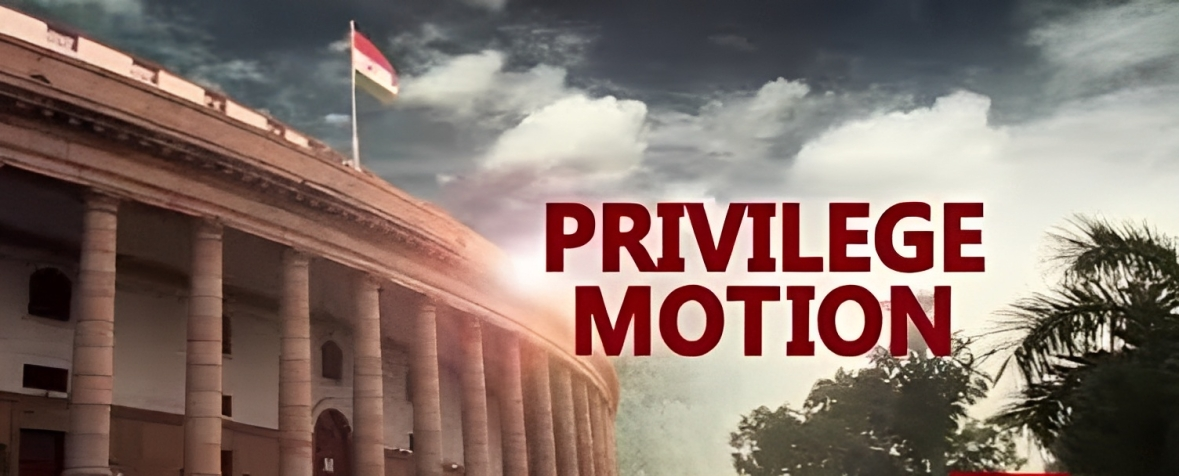Free Courses Sale ends Soon, Get It Now


Free Courses Sale ends Soon, Get It Now



Copyright infringement not intended
Context: Recently the Rajya Sabha Chairman has referred complaints against 2 Members to the Privileges Committee. The complaints allege that the members made derogatory remarks against the Chairman on social media, which amounted to lowering the dignity and authority of the Chairman and the House.
Details
Privilege motion
Must-Read Articles:
Privilege Motion: https://www.iasgyan.in/daily-current-affairs/privilege-motion-43
COMMITTEE OF PRIVILEGES: https://www.iasgyan.in/daily-current-affairs/committee-of-privileges
|
PRACTICE QUESTION Q. Consider the following statements: 1. Only the chairperson has the authority to raise a Privilege Motion in a parliamentary session. 2. Parliamentary Privileges are essential for members to perform their duties without fear of obstruction or legal action. 3. Members of Parliament are immune from civil or criminal proceedings for statements made or actions taken within the scope of their parliamentary duties. Which of the following Statement is/are correct? A) 1 and 2 only B) 2 and 3 only C) 1 and 3 only D) 1, 2 and 3 Answer: B Explanation: Statement 1 is incorrect: Any member of the legislative body, regardless of party affiliation, has the right to raise a Privilege Motion if they believe that a breach of parliamentary privilege has occurred. The motion will then be subject to scrutiny and further actions within the parliamentary procedures. Statement 2 is correct: Parliamentary privileges are a set of rights and immunities enjoyed by members of a legislative body to ensure the effective functioning of the institution and to safeguard the freedom and integrity of parliamentary proceedings. These privileges are essential for members to perform their duties without fear of obstruction or legal action. Statement 3 is correct: Members are immune from civil or criminal proceedings for statements made or actions taken within the scope of their parliamentary duties. This immunity ensures that members can discharge their responsibilities without being held legally liable. |
© 2024 iasgyan. All right reserved